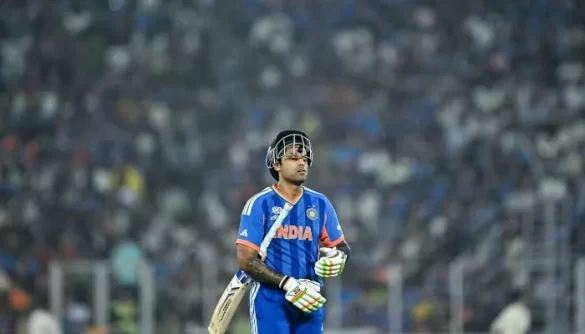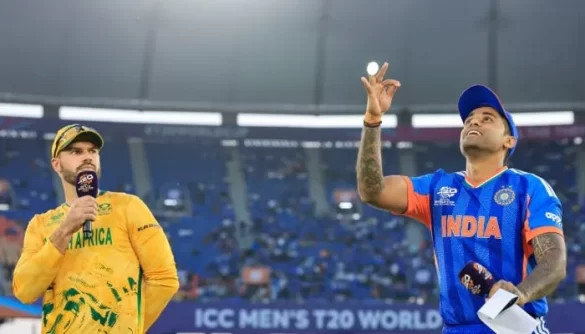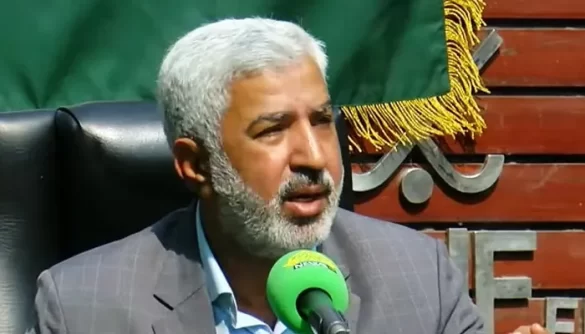Early Exit in Asia Cup Opener
Pakistan’s promising young opener, Saim Ayub, endured a nightmare start to the Asia Cup when he was dismissed on the very first ball he faced against Oman. Playing in the tournament’s opening fixture, the left-handed batsman fell to Oman’s medium pacer Shah Faisal, who trapped him leg-before-wicket with just the second delivery of the innings.
Saim attempted a flick towards the leg side but missed completely, leaving him with a golden duck — a dismissal without scoring on the first ball. The early setback put Pakistan under pressure at the start of their campaign, though the team eventually managed to stabilize and went on to crush Oman by 93 runs to open the T20 Asia Cup in style.
Fourth Career Duck in T20 Internationals
This dismissal marked Saim Ayub’s fourth career duck in T20 internationals, bringing him level with senior Pakistan openers Mohammad Rizwan and Mohammad Hafeez, both of whom have been dismissed for zero on four occasions during their international T20 careers.
While Saim is still at the start of his career, the recurrence of early dismissals has begun to draw attention. In cricketing terms, frequent ducks often highlight inconsistency, though they are not uncommon among aggressive openers who take risks early in their innings.
Babar Azam Leads the List
Among Pakistani batsmen, Babar Azam tops the list for most ducks in T20 internationals, having been dismissed without scoring six times. Former wicketkeeper-batsman Kamran Akmal follows with five ducks. With his fourth, Saim Ayub now sits alongside Hafeez and Rizwan. Just below them are Hasan Nawaz and Shahzaib Hasan, both of whom have registered three ducks in their T20 international careers.
This statistic highlights how even some of Pakistan’s most accomplished players, including Babar and Rizwan, have faced similar challenges. It is also a reminder that in the shortest format, risk-taking at the top of the order can often lead to such outcomes.
Saim Ayub’s Career So Far
Despite the recent disappointment, Saim Ayub remains one of Pakistan’s most highly rated young cricketers. At just 22 years old, he has been seen as a long-term opening partner for Babar Azam. Since his debut in 2023, he has played with an aggressive intent that has impressed selectors and fans alike.
According to official statistics, Saim’s batting average hovers around 30, while his strike rate stands at 136.22 — healthy numbers for a modern T20 opener. These figures suggest that while he has endured setbacks, his attacking style gives Pakistan the fast starts needed in the format.
Expert Opinions and Fan Reactions
Cricket analysts point out that early dismissals should not overshadow Saim’s potential. They argue that several top-class T20 batsmen around the world, including India’s Rohit Sharma and England’s Jos Buttler, have also suffered from multiple ducks in their careers. Consistency often comes with experience.
Fans, particularly on social media, expressed disappointment at his golden duck against Oman but also showed support, emphasizing that mistakes are part of a young player’s journey. Some commentators even suggested that Pakistan should persist with Saim to allow him to develop confidence at the international level.
Pakistan’s Wider Context in T20 Cricket
Pakistan’s T20 side has historically produced talented openers, from Kamran Akmal and Mohammad Hafeez to the more recent partnership of Babar Azam and Mohammad Rizwan. The rise of Saim Ayub reflects Pakistan’s effort to build a younger core capable of handling the pressure of international tournaments.
With the T20 World Cup 2026 approaching, selectors are keen to give players like Saim ample exposure. His strike rate and fearless batting style make him an asset, provided he can minimize the frequency of low scores.
Looking Ahead
While the “unwanted record” is likely to remain a talking point, cricket experts caution against reading too much into it. In T20 cricket, where margins are small and innings are short, even established stars face the risk of ducks.
For Saim Ayub, the priority will be to convert his starts into match-winning performances and silence critics with consistency. Pakistan’s management, meanwhile, will hope that he fulfills his potential and becomes a long-term fixture at the top of the order.















